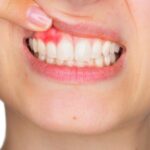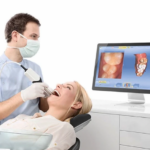
In the quest for good health, we often focus on exercise, sleep, and mental wellness. However, oral or dental help sometimes gets overlooked. Our mouths are the gateway to our bodies, and what we eat directly impacts the health of our teeth and gums. By understanding how our diet influences dental health, we can make informed choices that promote overall well-being and give us a radiant smile.
Strong Teeth and Gums
Just as certain foods benefit our heart, brain, and muscles, some foods can benefit our oral health. Calcium-rich foods like dairy products, leafy greens, and almonds are essential for strengthening teeth enamel, the protective outer layer of our teeth. Enamel plays a vital role in shielding teeth from decay and erosion, so calcium-rich foods into our diet can fortify our pearly whites.
Furthermore, foods high in phosphorus, such as fish, lean meats, and eggs, contribute to tooth mineralization. That will help to support your enamel.
When it comes to healthy gums, vitamin C, found strawberries, and bell peppers, bolsters collagen production to helps prevent gum disease and promotes tissue healing.
Although you should never skip brushing and flossing, crunchy fruits and vegetables like apples, carrots, and celery stimulate saliva production and help to scrub away plaque and food particles. They are also packed with water and fiber, which help balance oral pH levels and reduce the risk of cavities.
Impact of Sugar and Acid on Teeth
While certain foods nourish our smiles, others can wreak havoc on our dental health. Sugar, particularly in the form of sucrose, fructose, and glucose, is the primary culprit behind tooth decay. When we consume sugary foods and beverages, bacteria in our mouths feast on the sugars and produce acids that erode enamel, leading to cavities and decay over time.
Acidic foods and drinks like soda can also weaken enamel and increase susceptibility to erosion. Even seemingly innocuous habits like sipping on lemon water throughout the day or snacking on acidic fruits can gradually wear down enamel and pave the way for dental problems.
Tips for Balancing Dental Health and Diet
Achieving good oral health doesn’t mean you have to completely eliminate sugary or acidic foods from your diet. Instead, you can adopt a balanced approach that prioritizes dental health while still enjoying your favorite treats.
Here are some practical tips to maintain a healthy smile:
- Limit Sugary and Acidic Foods: Moderation is key when it comes to sugary and acidic foods. Instead of indulging in sugary snacks or acidic beverages frequently throughout the day, try to enjoy them in one sitting and rinse your mouth with water afterward to minimize their impact on your teeth.
- Choose Smile-Friendly Snacks: Snacks like cheese, yogurt, nuts, and crunchy fruits and vegetables that promote dental health.
- Practice Good Oral Hygiene: A healthy diet complements good oral hygiene practices like brushing twice a day, flossing daily, and using fluoride toothpaste. These habits help remove plaque and bacteria from the surfaces of teeth and along the gumline, reducing the risk of cavities and gum disease.
- Stay Hydrated: Drinking plenty of water throughout the day helps rinse away food debris and neutralize acids in the mouth, promoting a healthy oral environment. Aim to drink water after meals and snacks.
- Visit Your Dentist Regularly: Regular dental check-ups and cleanings are essential for detecting and addressing any dental issues early on. If you have questions about how something affects your teeth, ask your dentist of hygienist questions and they can help you maintain a beautiful, healthy smile.
You might have noticed that the rules for having a healthy smile are closely aligned with having a healthy diet. Make sure to take care of your dental health and overall well-being . . . your future self will thank you for it!
Have a question? Reach out to us!


